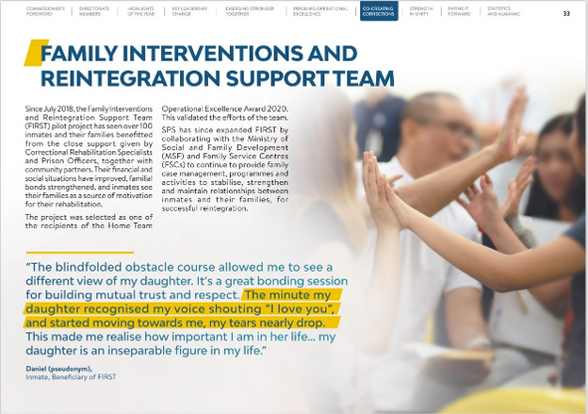Fathering Journey Program with Incarcerated Fathers: A Deeper Look
- ibrahimdawood

- Sep 14, 2025
- 2 min read
For many, fatherhood is a role assumed in freedom. But for incarcerated fathers, it becomes a heavy silence—often accompanied by guilt, absence, and broken ties. At BapaHebatSG, we see beyond the prison walls. We see potential, purpose, and the beginning of a journey.

Beyond Workshops: A Journey of Transformation
The Fathering Journey and Fathering BootCamp are not just programs; they are portals of change. While each initiative may appear to be a set of workshops or sessions, the lived experience is far deeper. Fathers arrive in our sessions carrying histories of pain, fractured relationships, and doubts about their worth.
What they receive is not just content—but connection. Our facilitators become mirrors, coaches, nudgers, and listening ears. Over six months, these men begin a quiet process of transformation—learning to communicate with empathy, rediscovering the value of their fathering role, and regaining hope for reconciliation with their children.
Why This Matters
Studies like those evaluating the InsideOut Dad program show that fatherhood programs in prisons:
Improve father-child relationships
Reduce recidivism
Strengthen self-identity and well-being
Decrease partner conflict post-release
Our experience echoes these findings. Every letter written, every reflection shared, and every commitment made to reconnect with a child is a testimony that the process is working.
Who Benefits?
Ultimately, the greatest beneficiaries are not just the fathers—it’s their children and families:
A daughter receives a birthday card for the first time in years.
A wife hears her husband say, “I want to be better—for you and our kids.”
A boy hears his father’s voice not in anger, but in love.
These are not anecdotes. These are real outcomes we witness—and document.
Your Support Powers This Journey
When you support BapaHebatSG’s prison fathering programs, you’re not funding “sessions.” You’re investing in hope. You're supporting the repair of generational wounds. You're helping a father find his way back—not just to his family, but to himself.
Let’s walk this journey together. Because no child should grow up thinking they were abandoned. And no father should believe it’s too late to start again.





























Comments